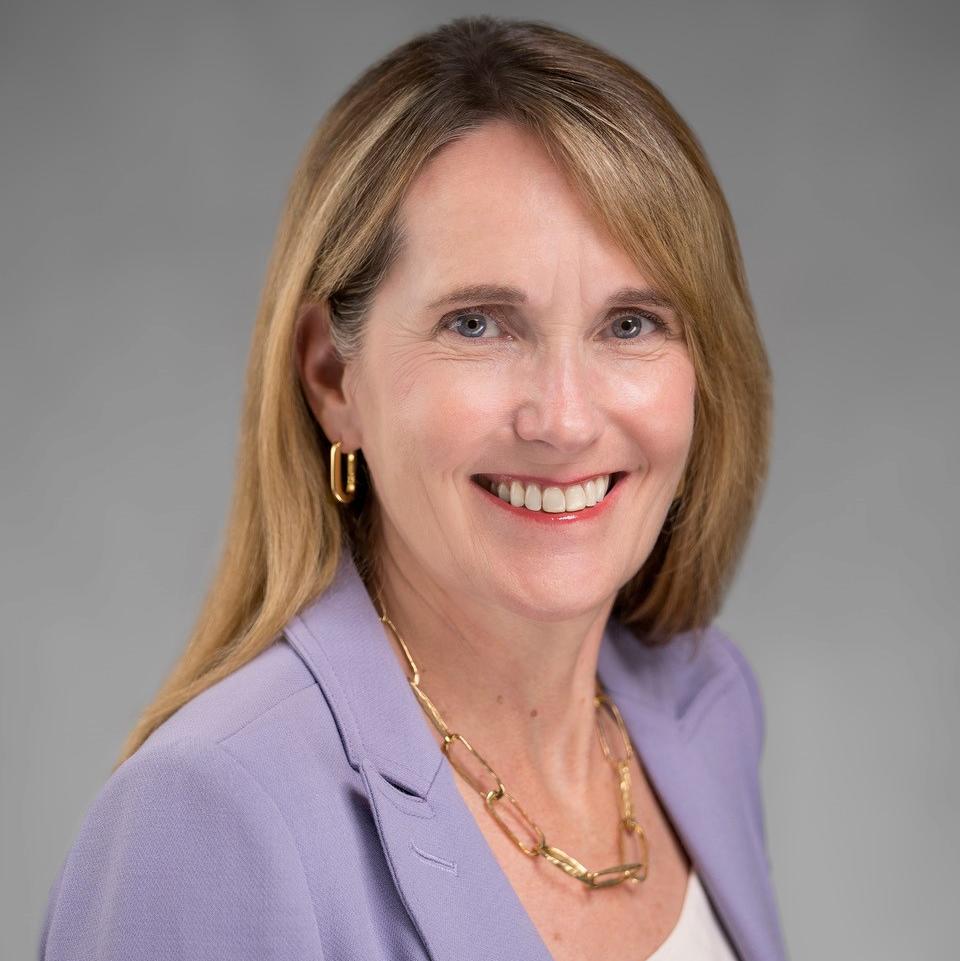
The Best of Both Worlds: The Future of Work in Capital Markets
-
bookmark
-
print
It’s not that long ago that the physical pitch book was entrenched in deal-making lore, for decades thumped down on boardroom tables to quantify bankers’ expert advice on why to transact on a deal.
Enter COVID and exit the physical form of the pitchbook, as well as a lot of other norms that no longer serve a useful purpose.
When the COVID-19 pandemic landed in North America in the spring of 2020, the capital markets industry, like the rest of the economy, ground to a halt, briefly.
And then, suddenly, and as the proverbial room stopped spinning, the industry went into overdrive, embarking in the space of weeks on some of its biggest changes in decades, even as we entered some of the most vibrant capital markets in living memory in both the United States and Canada.
Before the pandemic, no one would have even entertained the notion of a trader, never mind an entire trading floor, working from home, but it happened.
We went from being effectively 100 percent at the office, to being 100 percent at home. We went from in-person to virtual, in-Teams meetings. We built virtual interfaces for our high-processing users so that they didn’t have to use a PC or laptop anymore. It was a subtle point, but to be able to do that was a major enabler.
We’ve had to change how and where we work, while staying focused on helping clients achieve their goals. How we deal with and understand non-financial risks has changed fundamentally with COVID, and that will not only remain, but also reverberate for years to come.
And yet, against all odds, the industry not only survived, but thrived.
Changes led to enormous short-term productivity gains, with no commuting to the office, nobody on planes, and a pivot to online/virtual client engagement and finding creative ways to stay connected.
There is no going back to the way we were, and that’s because most of what we’ve come up with is better, including heightened expectations for a leadership that is agile and maintains an interface with staff even as we experienced the end of the in-person, visibility era.
The buzzwords of the new and emerging era are loud and clear: resilience, adaptability, flexibility, agility, and, of course, hybrid. We describe COVID as the great accelerator because it has forced change, and that will only continue as we exit.
We haven’t seen most of our clients in person for 18 months, but deals are getting done. Mergers and acquisitions did not slow down just because people couldn’t go and visit assets, even if that meant doing virtual tours or flying drones over mines instead of having boots on the ground.
Why we needed a pandemic to tell us to do away with physical pitch books will remain a mystery.
It’s a tribute to our resilience, adaptability, and focus that the industry stuck to what it does best: putting clients first and helping them move forward and grow their businesses. Our job has been to facilitate change by anticipating client needs and coming up with solutions.
Client interaction and client coverage will never go back to the way they were: Industry conferences are now virtual, as, too, are all non-deal road shows.
They may come back; they may not. Maybe it will be somewhere in between.
In many ways, we serve the client better today than before COVID. For example, instead of flying and having two people at a client visit, we can now put 10 of our best in the room and bring our full talent set to bear.
The end goal is to get the best of both worlds. We need to make 1 + 1 = 3.
We want the best of the office and we want the best of flexibility, so that, as we go forward, we embrace new, better norms around how and where we work. There will be a return to some of the things that we did before, but only what was good. In our own operations, we are not going back to five days a week in the office; in the client environment, we are not going back to traveling every day to see the client, unless they need us to.
The hybrid model we are moving to is a work in progress. It promises further innovation and a rebuilding of bonds that cannot be forged digitally.
Why we needed a pandemic to tell us to do away with physical pitch books will remain a mystery.

The Best of Both Worlds: The Future of Work in Capital Markets
Senior Advisor to the CEO
Effective November 1, 2023, Dan Barclay will retire as Chief Executive Officer & Group Head, Capital Markets, and transition to a role as Senior Advisor to the …
Vice Chair, BMO Capital Markets
Áine was appointed Vice Chair, Capital Markets in May 2024. Prior to her role as Vice Chair, Áine held roles as Head of Investment Banking and Head, I…
Effective November 1, 2023, Dan Barclay will retire as Chief Executive Officer & Group Head, Capital Markets, and transition to a role as Senior Advisor to the …
VIEW FULL PROFILEÁine was appointed Vice Chair, Capital Markets in May 2024. Prior to her role as Vice Chair, Áine held roles as Head of Investment Banking and Head, I…
VIEW FULL PROFILE-
Minute Read
-
Listen
Stop
-
Text Bigger | Text Smaller
It’s not that long ago that the physical pitch book was entrenched in deal-making lore, for decades thumped down on boardroom tables to quantify bankers’ expert advice on why to transact on a deal.
Enter COVID and exit the physical form of the pitchbook, as well as a lot of other norms that no longer serve a useful purpose.
When the COVID-19 pandemic landed in North America in the spring of 2020, the capital markets industry, like the rest of the economy, ground to a halt, briefly.
And then, suddenly, and as the proverbial room stopped spinning, the industry went into overdrive, embarking in the space of weeks on some of its biggest changes in decades, even as we entered some of the most vibrant capital markets in living memory in both the United States and Canada.
Before the pandemic, no one would have even entertained the notion of a trader, never mind an entire trading floor, working from home, but it happened.
We went from being effectively 100 percent at the office, to being 100 percent at home. We went from in-person to virtual, in-Teams meetings. We built virtual interfaces for our high-processing users so that they didn’t have to use a PC or laptop anymore. It was a subtle point, but to be able to do that was a major enabler.
We’ve had to change how and where we work, while staying focused on helping clients achieve their goals. How we deal with and understand non-financial risks has changed fundamentally with COVID, and that will not only remain, but also reverberate for years to come.
And yet, against all odds, the industry not only survived, but thrived.
Changes led to enormous short-term productivity gains, with no commuting to the office, nobody on planes, and a pivot to online/virtual client engagement and finding creative ways to stay connected.
There is no going back to the way we were, and that’s because most of what we’ve come up with is better, including heightened expectations for a leadership that is agile and maintains an interface with staff even as we experienced the end of the in-person, visibility era.
The buzzwords of the new and emerging era are loud and clear: resilience, adaptability, flexibility, agility, and, of course, hybrid. We describe COVID as the great accelerator because it has forced change, and that will only continue as we exit.
We haven’t seen most of our clients in person for 18 months, but deals are getting done. Mergers and acquisitions did not slow down just because people couldn’t go and visit assets, even if that meant doing virtual tours or flying drones over mines instead of having boots on the ground.
Why we needed a pandemic to tell us to do away with physical pitch books will remain a mystery.
It’s a tribute to our resilience, adaptability, and focus that the industry stuck to what it does best: putting clients first and helping them move forward and grow their businesses. Our job has been to facilitate change by anticipating client needs and coming up with solutions.
Client interaction and client coverage will never go back to the way they were: Industry conferences are now virtual, as, too, are all non-deal road shows.
They may come back; they may not. Maybe it will be somewhere in between.
In many ways, we serve the client better today than before COVID. For example, instead of flying and having two people at a client visit, we can now put 10 of our best in the room and bring our full talent set to bear.
The end goal is to get the best of both worlds. We need to make 1 + 1 = 3.
We want the best of the office and we want the best of flexibility, so that, as we go forward, we embrace new, better norms around how and where we work. There will be a return to some of the things that we did before, but only what was good. In our own operations, we are not going back to five days a week in the office; in the client environment, we are not going back to traveling every day to see the client, unless they need us to.
The hybrid model we are moving to is a work in progress. It promises further innovation and a rebuilding of bonds that cannot be forged digitally.
Why we needed a pandemic to tell us to do away with physical pitch books will remain a mystery.
Road to Recovery 2021
PART 1
North American Investment Strategy: 2021 Market Outlook
Brian Belski February 04, 2021
While 2020 has been a challenging year, it’s also highlighted our resilience and determination. Those qualities were evident in the U…
PART 2
COVID-19: The Biden Presidency and What Lies Ahead
Brian Belski, Michael Gregory, CFA, None January 26, 2021
With Joe Biden sworn in as the 46th U.S. president, and on the day Canada marked the one-year anniversary of its first confirmed COVID-19 c…
PART 3
NextGen Treasury: Your Digital Roadmap
Marc-Andre Bergeron February 09, 2021
Digitizing payments has become more important than ever as organizations look to increase working capital, create efficiencies, potentially…
PART 4
Deep Dive into Debt - How Retail Borrowed to Health through COVID
Simeon Siegel, CFA April 06, 2021
More retailers are borrowing under COVID than during the Global Financial Crisis Retailers have borrowed multiples higher tha…
PART 5
The ‘E’, ‘S’ and ‘G’ in Mining
Magali Gable April 21, 2021
At our 30th Annual Global Metals & Mining Conference this year, producer after producer engaged on the subject of sustainable mining in…
PART 6
The Changing Landscape of U.S. Trading
Joe Wald May 21, 2021
Changes to rule 606(b), the transparency and the NMS market data rule will increase data transparency and level the playing field for…
PART 7
COVID-19: Biden's First 100 Days: Tracking the Road to Recovery
Dan Barclay June 14, 2021
With President Joe Biden cresting the first 100 days of his administration, experts are forecasting a strong economic rebound in the United…
PART 8
IN Tune: Food and Ag Takeaways From the Farm to Market Conference
Joel Jackson, P.Eng., CFA, Kelly Bania July 02, 2021
IN Tune is a podcast featuring Equity Research analysts from BMO Capital Markets. Our episodes explore key emerging themes, trend…
PART 9
Extraordinary New Drivers Mean U.S. M&A has Room to Run
Lyle Wilpon July 26, 2021
That we’re living through one of the most robust M&A markets in living memory will not come as news to anyone. That markets are firing on…
PART 10
Accelerating the Road to Recovery
Dan Barclay August 16, 2021
What kind of headwinds can we expect and what are the risks? Will inflation woes drive a change in monetary policy? BMO Capital Markets…
PART 11
The Delta Surge and Impacts on a Reopening
Brian Belski October 27, 2021
On September 28, BMO hosted a panel to provide an update on the current state of the pandemic and an outlook on what it means for the marke…
You might also be interested in
Op Ed: Businesses and Community Organizations Need to Come Together to Fight Poverty

Biggest Trends in Food and Ag, From ESG to Inflation to the Supply Chain
Cloud, Data and Zero-trust: Here’s Where VCs are Putting Their Cybersecurity Investments
BMO Announces $250,000 Donation to Organizations Supporting Global Emergency COVID-19 Relief Efforts
Canada Eyes Biggest Economic Rebound in Half a Century, Plots Equitable Recovery - Panel
Leading with Resiliency: Highlights from BMO’s Forum for Executive Women
Ian Bremmer in Conversation: The Pandemic and a Changing Geopolitical Landscape
COVID-19 Puts Spotlight on Strong Liquidity Management, Antifraud Practices
Canada's Six Biggest Banks Take Decisive Action To Help Customers Impacted by COVID-19













